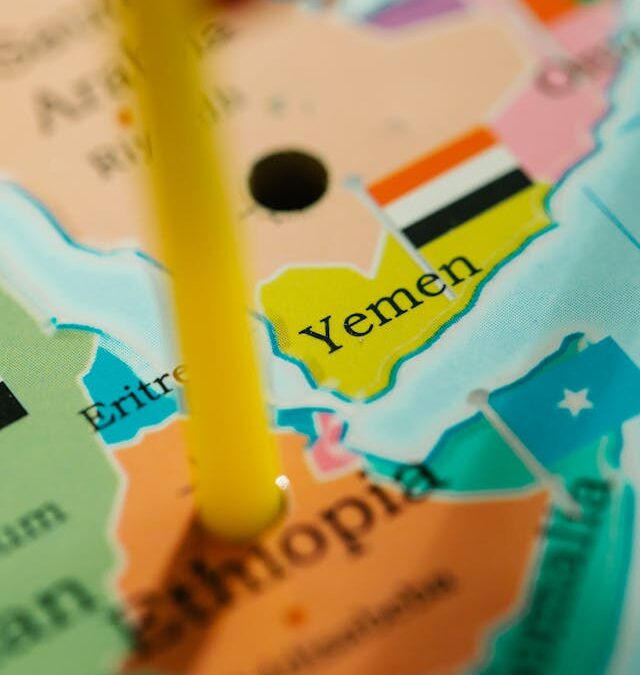Yemen faces one of the most severe humanitarian crises in the world, stemming from a prolonged conflict that has led to widespread poverty, food insecurity, mass displacement, destruction of infrastructure, and limited access to essential services. As a result, millions of Yemenis are in urgent need of humanitarian aid to meet their basic needs and rebuild their lives.
In the face of Yemen’s dire humanitarian crisis, the nonprofit Islamic Relief USA (IRUSA), through its international Islamic Relief partners, has provided lifesaving assistance and relief to Yemenis. Islamic Relief has managed to deliver vital assistance in some of the most challenging environments, including conflict-affected areas and hard-to-reach communities.
As Yemen continues to grapple with the devastating effects of conflict and humanitarian crises, the role of organizations like IRUSA and Islamic Relief remains indispensable in providing hope, relief, and support to those affected.
Factors contributing to Yemen’s humanitarian crisis
The humanitarian crisis in Yemen is primarily fueled by the protracted conflict that has engulfed the country for nearly a decade. The conflict has resulted in widespread violence, displacement, and destruction of critical infrastructure, including schools, hospitals, and water facilities. Additionally, Yemen faces chronic food insecurity due to disruptions to food production and distribution channels, as well as economic instability.
These factors, compounded by high levels of poverty and limited access to essential services, have pushed millions of Yemenis to the brink of famine and humanitarian catastrophe. Understanding the root causes of the crisis is essential for effectively addressing the needs of the Yemeni people and providing meaningful support and assistance.
Islamic Relief USA’s response in Yemen
In the face of the ongoing humanitarian crisis in Yemen, Islamic Relief has been at the forefront of providing vital assistance to those in need. With a comprehensive approach to addressing the multifaceted challenges faced by the Yemeni population, the organization has implemented a range of initiatives to deliver lifesaving aid and support rebuilding efforts.
Emergency medical aid and access to health care
Islamic Relief has been actively involved in providing emergency medical assistance and health care services in Yemen. The organization has set up 167 health facilities throughout the country, where doctors and nurses treat wounded, malnourished, and ill people. Additionally, our donations help fund medical supplies, equipment, and medications that are distributed to health care facilities to ensure that they have the necessary resources to treat patients effectively.
Food aid
As part of their humanitarian response in Yemen, IRUSA partners have been distributing food aid and supporting food security initiatives to combat hunger and malnutrition. This involves providing food parcels, nutritional supplements, and ready-to-eat meals to vulnerable populations, including internally displaced persons (IDPs) and families facing food insecurity.
Clean water and sanitation
In response to the water and sanitation crisis in Yemen, IRUSA partners are implementing water and sanitation projects to improve access to clean water and sanitation facilities. This has included drilling boreholes, repairing water systems, and installing water purification units to ensure access to safe drinking water. Additionally, hygiene promotion campaigns are conducted to raise awareness about the importance of sanitation and hygiene practices to prevent the spread of waterborne diseases.
Essential non-food items
Islamic Relief is dedicated to delivering essential non-food items and hygiene kits to vulnerable communities in Yemen. These kits typically include items like blankets, clothing, hygiene products, and household essentials to meet the immediate needs of families affected by conflict and displacement.
Cholera emergency response
In October 2016, at the peak of the country’s civil war, Yemen faced a severe cholera outbreak. The peak occurred in 2017 and it remained severe until the end of 2021. By November of that year, there had been over 2.5 million reported cases and over 4,000 deaths, prompting the United Nations to name it the world’s worst humanitarian crisis.
IRUSA led an emergency cholera response in Yemen. By the end of 2021, significant progress had been made in controlling the outbreak thanks to programs like this and successful vaccination efforts.
However, Yemenis are still at high risk of cholera and other preventable diseases, such as diphtheria, measles, and dengue fever. IRUSA partners continue to help the Yemeni people reduce their risk of contracting such diseases through emergency medical relief interventions.
Challenges and obstacles in humanitarian work in Yemen
Operating in conflict-affected regions poses significant security risks and access constraints for humanitarian groups like Islamic Relief. The ongoing conflict had led to the proliferation of armed groups, checkpoints, and volatile situations, making it difficult to effectively deliver aid. Security concerns not only jeopardize the safety of aid workers, but also hinder access to communities in dire need of assistance, further exacerbating the humanitarian crisis.
Funding shortages and resource limitations also pose significant obstacles for aid organizations like IRUSA and its partners. The scale of the crisis demands substantial financial resources to support relief efforts. However, limited funding and donor fatigue impede our ability to scale up our operations and reach all affected populations. As a result, aid groups face the daunting challenge of prioritizing assistance based on available resources, often leaving vulnerable communities underserved.
